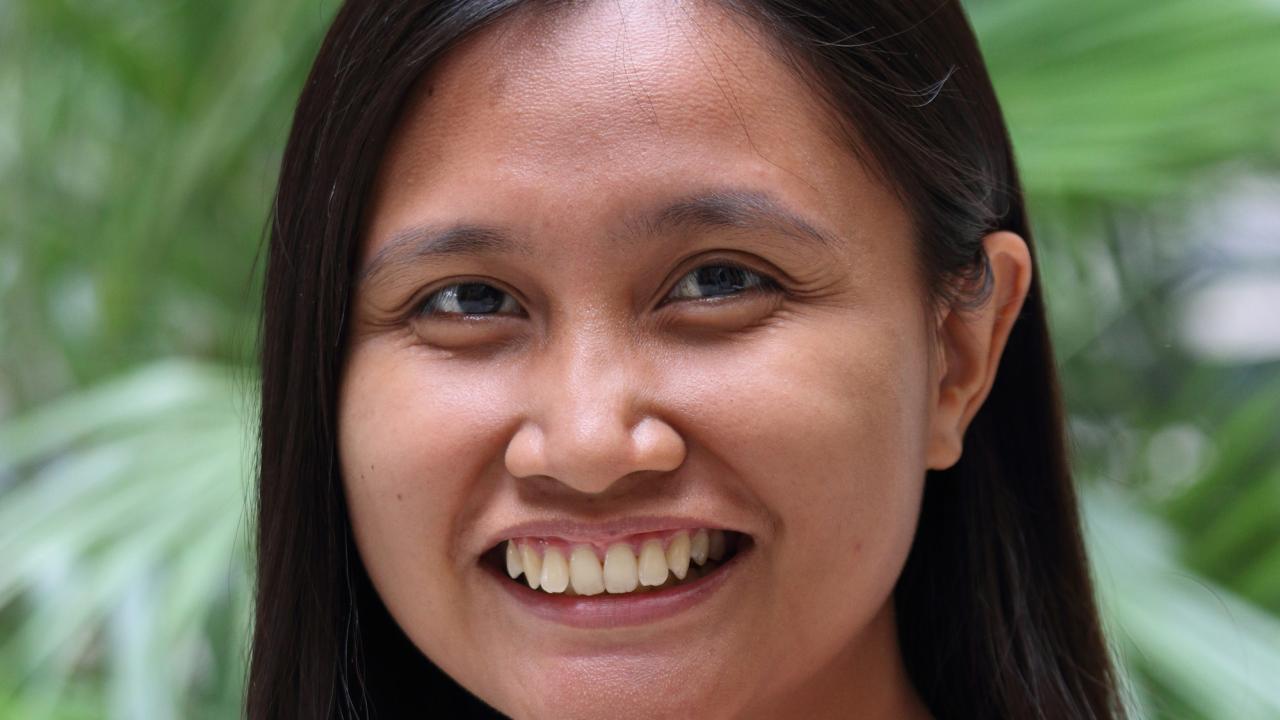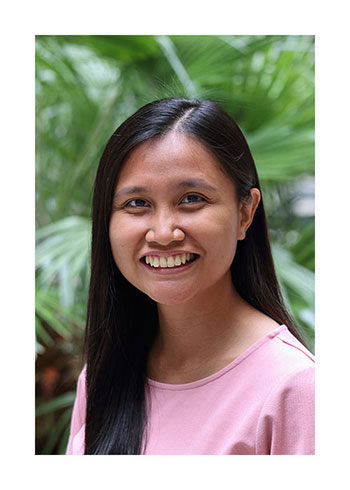
 Thanks to ICTP's Postgraduate Diploma Programme, hundreds of students from less advantaged countries have acquired the knowledge and skills they need to advance their scientific careers. One of the key benefits of the year-long, intense programme of study is the doors it opens for its alumni to pursue masters and PhD degrees at some of the most prestigious universities and institutes in the world.
Thanks to ICTP's Postgraduate Diploma Programme, hundreds of students from less advantaged countries have acquired the knowledge and skills they need to advance their scientific careers. One of the key benefits of the year-long, intense programme of study is the doors it opens for its alumni to pursue masters and PhD degrees at some of the most prestigious universities and institutes in the world.
Kristian Pajanonot, a student from the Philippines with a keen interest in biophysics, is among the latest Diploma alumni to see the advantages of completing the programme: she was accepted to two graduate programmes and has chosen to continue her path towards a master's and doctoral degree at Max Planck School (Matter to Life) in Germany. In this interview, she shares how her study and work experience have shaped her interest in physics, and how her year at ICTP taught her invaluable study skills that will ensure her success at the doctoral level and beyond.
When and why did you decide to dedicate your studies to physics?
I think it started when I was in high school. I wanted to work at CERN in Switzerland, and that was why I decided to study physics. In my second year in university, I started to realize that CERN didn't have the field that I wanted to specialize in. It wasn't high energy physics or particle physics; what I wanted to do instead was applying concepts in physics to study biological systems. That led me to choose a field in biophysics. For my thesis, I was developing a biomimetic tissue model using SaOs-2 osteosarcoma cell line in fibrin to characterise the metastatic potential of cancer cells using microrheology techniques. I enjoyed studying cancer cells. It wasn't abstract for me, I was really doing experimental work, I was culturing cancer cells and studying them with optical tweezers. And it felt good because it was like, wow, I was finally able to not just read it from an article but I was really able to study it from a physics perspective.
How did your research interests lead you to ICTP's Postgraduate Diploma Programme?
After I finished undergrad, I was thinking of doing a master's. But then, a job offer came for me to work as a data scientist for a US healthcare company. My parents thought it would be nice if I tried working in the industry first and see how it goes. And I thought, if I like it there then maybe attending grad school in physics isn't for me. So I worked in data science for three years. I was using machine learning, statistical methods to solve problems in the healthcare industry collaborating with other people in the US. I was able to realise later that I gained a new set of skills and techniques that I can complement with my experience in experimental research.
After three years, I decided to start looking again for opportunities to go back to graduate school. I found that ICTP's Quantitative Life Sciences Diploma Programme teaches students the theoretical background needed to analyse the different phenomena in life sciences. It was also giving courses in biophysics and data science. It seemed to be a perfect fit for my aspirations, as I wanted to pursue biophysics while learning more about data science.
In your opinion, what were the strengths of the Postgraduate Diploma Programme?
It was very wonderful! At first, it was really intense for me, because I had not been studying for the past few years, and my classmates were fresh graduates, or they already had master's. So I had to catch up. But because of the environment--my professors were really good and very nice, and also my classmates--I didn't feel we were in a competition at all, we were pulling each other up. So it motivated me to try my best to really study hard--I never thought I could study as hard as I did here at ICTP. I think that was really good, because I developed a good habit of studying. I started applying to graduate schools; in September I will start a five-year master's and PhD programme at Max Planck School (Matter to Life). I will start the master’s phase at Georg-August-University in Gottingen, Germany. ICTP was the key for me to get into a graduate programme.
What was your diploma thesis about?
I studied the behaviour and characteristics of (biophysical) models that exhibit non-reciprocal interactions from a thermodynamic perspective. So for example, in flocks of birds, the back bird sees the front bird and reacts to the movement of the front bird, but the front bird doesn't react to the back bird, simply because it does not see the back bird, so their interaction is not reciprocal. This is in a macroscopic scale; I'm studying it in small-scale systems like the oscillations of hair bundles (a cell in the ear) of a frog.
What are your future plans, say, in 10 or 20 years?
My goal in 10 or 20 years is to be able to bring the ideas that are published in papers to life. For example, when I was working in undergrad, we studied the role of micro-mechanical properties of cancer cells and its extracellular matrix in metastasis. I realised that maybe this study can aid in developing diagnostic tools for the early detection of metastasis, provide insights to design strategies for treatment of patients, or can help in further studies for important applications in medicine. Since undergrad up to now, I have read about several ideas published in papers about life sciences. I believe that there is a way for us researchers to be able to turn these ideas into new technology or products that can help improve our lives.
















